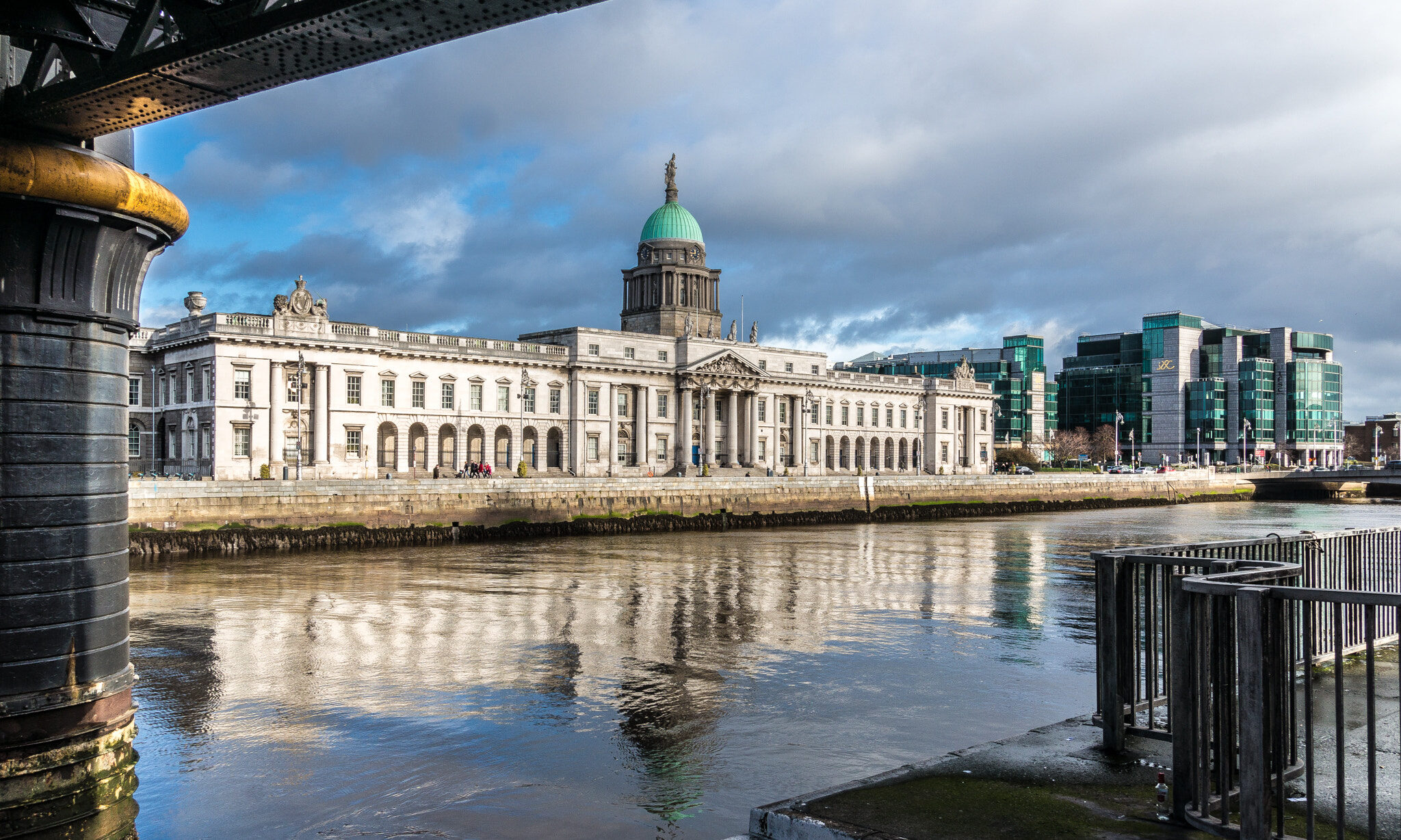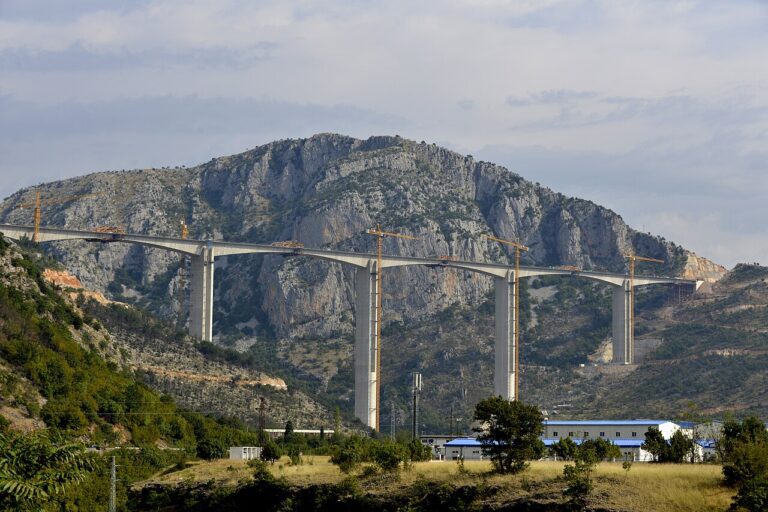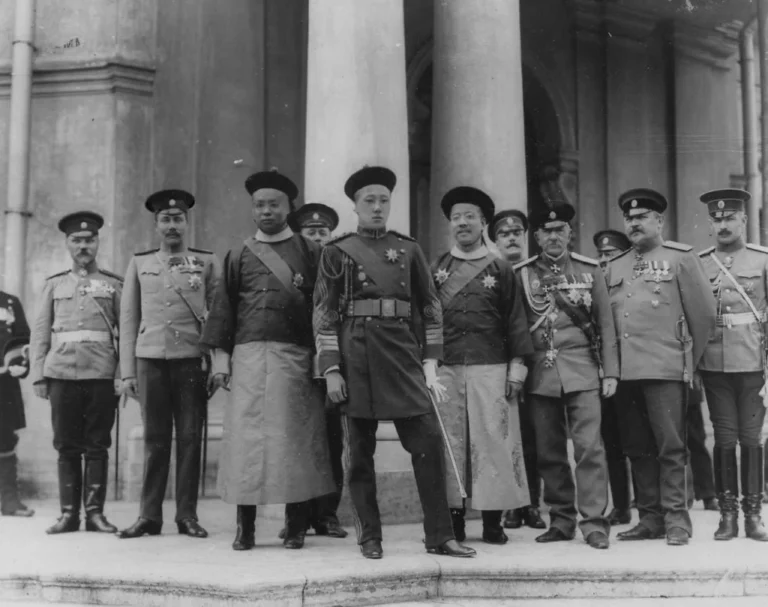
While ties between Ireland and China have been relatively free of the tensions seen in many other European countries’ bilateral relationships with Beijing, troubles might lie ahead.
In mid-January 2024 Chinese Premier Li Qiang, number two in the Chinese political system, visited Ireland. After attending the World Economic Forum in Davos, Switzerland and making an official Swiss state visit while there, Dublin was the only European capital Li visited before heading back to Beijing.
In the lead-up to the visit reporters and other observers all had the same question: why Ireland?
After all, Ireland is, with all due respect to the author’s adopted home, tiny. With a population of just over 5 million, it is one of the smaller EU member states. If it were a Chinese city, it wouldn’t even crack the top 20 most populous in the country. Sure, its per capita GDP is more than €100,000 but this is largely a product of multinationals’ accounting practices distorting the stats, or Leprechaun Economics.
So, why Ireland? A few plausible reasons come to mind.
First is that Ireland is militarily neutral. It is not a member of NATO or any other military bloc. While it is not morally neutral on military matters, for example loudly and repeatedly condemning Russia’s 2022 invasion of Ukraine and calling for a ceasefire in Gaza, its neutrality policy puts it in a different category from NATO members. Recent years have seen China escalate its criticisms of the alliance and so rewarding a non-NATO European state with a charm-offensive visit may have been part of the calculus.
A second reason is that China sees Ireland as a potentially friendly voice in the European Union. Perhaps this is because Ireland is the only EU state that maintains a trade surplus with China, meaning it has an interest in smooth relations. Ireland has presented itself to China previously as a “gateway to Europe.” Perhaps this view of Ireland runs deeper. Ireland has legacies of anti-imperialism and China has long fashioned itself as an anti-imperialist power. Chinese officials have occasionally tried to play to shared history of opposing foreign domination and pitch China’s various global political programs to Irish elites in ways they probably wouldn’t in other European capitals.
It is not clear how effective these ideological appeals are. But, with Sinn Féin potentially leading the next Irish government, perhaps the thinking goes that seeding the ground with references to a different brand of foreign relations is worth a try given the party’s emphasis on emerging from colonialism and being a voice for the oppressed.
Between the Many Meanings of One-China and Human Rights
The visit itself yielded two tangible outcomes for Dublin. To coincide with the visit, China announced unilateral visa-free travel for several categories of Irish citizens wishing to visit China. Furthermore, it was announced that Irish exports of beef to China were to resume after a case of BSE (or ‘Mad Cow Disease’) was detected in Ireland last year.
What Dublin gave in return, if anything, is unclear.
Confusion reigned after Chinese propaganda outlet CGTN, in an article about China announcing visa-free travel, claimed that Irish Prime Minister Leo Varadkar “said Ireland … always abides by the One-China principle and hopes that China will achieve peaceful reunification at an early date.” The One-China “principle” is Beijing’s preferred formulation and has it that Taiwan is a part of China with the PRC government as the sole legal representative of China, including Taiwan. That is different from most countries’ One-China “policies”, which “note” or “respect” or “recognize” the PRC’s claim but do not go farther.
Later that day Varadkar clarified that Ireland’s Taiwan policy had not changed. Was the CGTN summary intentional misinformation? The outlet is, after all, overseen by the Central Propaganda Department of the Chinese Communist Party. It’s more akin to Russia’s RT than editorially independent public broadcasters like Ireland’s RTÉ or Britain’s BBC. Or did Varadkar indeed misspeak, perhaps unfamiliar with the nuances of diplomatic language governing relations with Taiwan? Varadkar says he reaffirmed Ireland’s One-China policy in the meeting, lending support to the idea that the statement was fabricated, but regardless clarification work was necessary. The CGTN article allegedly mischaracterizing Varadkar’s remarks remains on its website.
At its root though, the main tension in Ireland’s approach to China is between human rights values and economic imperatives. According to the Irish Department of Foreign Affairs, “Respect for human rights and the promotion of human rights is a cornerstone of Irish foreign policy.” Ireland is active in a range of multilateral bodies to promote human rights and the department engages with Irish civil society so that the latter’s views can be reflected in Dublin’s foreign policy. Chinese authorities have a different view of human rights, downplaying civil and political rights or minority protections, for example, and prioritizing state sovereignty above individual rights.
Ireland generally (but not always – more on that later) brings up its human rights concerns about China privately with Chinese interlocutors, by folding them into European Union initiatives, or by making statements together with other states.
So far, this strategy has allowed Ireland to successfully court Chinese investment and maintain a trade surplus with Beijing. The approach, in general, is pro-business. Various Irish agencies and ministries work to stimulate trade and boost investment. Minister-led trade delegations travel to China to open new opportunities.
There has not been a crisis point between human rights values and trade like there has been between China and, for example, Norway or Sweden. But it may come someday, and Dublin should be prepared.
Beijing’s Image Management
If a breaking point comes, it will take place in a context of widespread public skepticism of the Chinese government. Polling on the topic is not frequent, but a 2021 survey showed that 84 percent of respondents either “distrust” or “strongly distrust” the Chinese government. When asked “In one word, how would you describe the Rise of China?” the three most popular responses were “worrying”, “dangerous”, and “scary”. Chinese actions like the nearly three year detention of Irish businessman Richard O’Halloran or the literal chasing out of RTÉ China correspondent Yvonne Murray surely don’t help.
China has tried to ameliorate its poor image amongst the Irish public. For example, the Chinese embassy purchased a full-page advertorial in The Irish Times on the occasion of the 100th anniversary of the founding of the Chinese Communist Party in July 2021, presenting it as a free-standing article by the ambassador. But the ad was controversial, and indeed author was invited to respond in the opinion pages of the same paper.
University College Dublin – the author’s employer and the largest university in the country – has a large Confucius Institute (CI) and related China studies center. The self-described goal of the UCD CI is to “work with the Irish government, businesses and academia to develop stronger educational, cultural and commercial links between Ireland and China.”
Even so, the initiative has been a source of controversy. The building itself, to which the CI has a 50 year free lease, went over budget. The CI-linked Irish Institute for Chinese Studies teaches a course on Chinese politics for credit at UCD, an arrangement that is clearly problematic. UCD’s previous president tried to suggest that criticisms of the CI were racist, which stoked outrage among many. Even so, Irish authorities have not followed European counterparts in Sweden, Finland, or Norway in allowing contracts with CIs to lapse, effectively shuttering them. This despite the European Parliament in 2022 calling on universities in member states to free their China-related programs from entanglements with the party-state.
Changes Ahead?
So, where do we stand? Ireland’s approach to China is potentially evolving. In a May 2023 speech foreign minister and former prime minister Micheál Martin outlined an approach to China that was “clear-eyed about China’s strategic objectives and about what these might mean for the European Union and Ireland.” He called on various sectors of the society and economy – including author’s own of higher education – to think through its links with China more carefully. While not foreclosing economic and business exchange, the speech was seen as a call for “de-risking”. It was a striking speech given Ireland’s generally cautious approach. He called on China to respect human rights in Xinjiang, Tibet, and Hong Kong, which led to a rebuke from the Chinese embassy. And yet, a few months later on a visit to China, Martin apparently felt compelled to soften his tone.
Economic imperatives and human rights values seemed to collide again. Time will tell how things unfold and whether Ireland will be in for a more meaningful change in its approach to China, but the question of “why Ireland” when it comes to China’s attentions will continue to deserve focus.
Written by
Alexander Dukalskis
AlexDukalskisAlexander Dukalskis is an Associate Professor at University College Dublin in the School of Politics and International Relations and Director of the new UCD Centre for Asia-Pacific Research.


